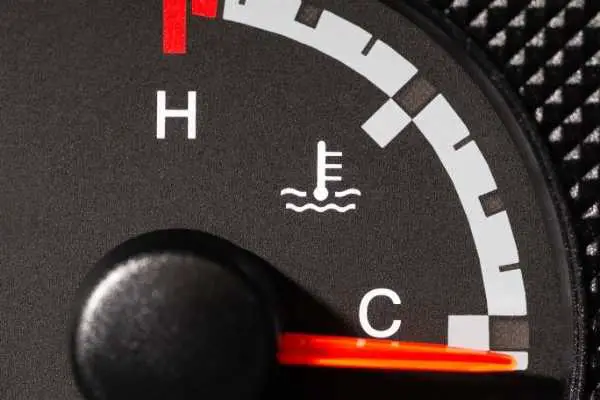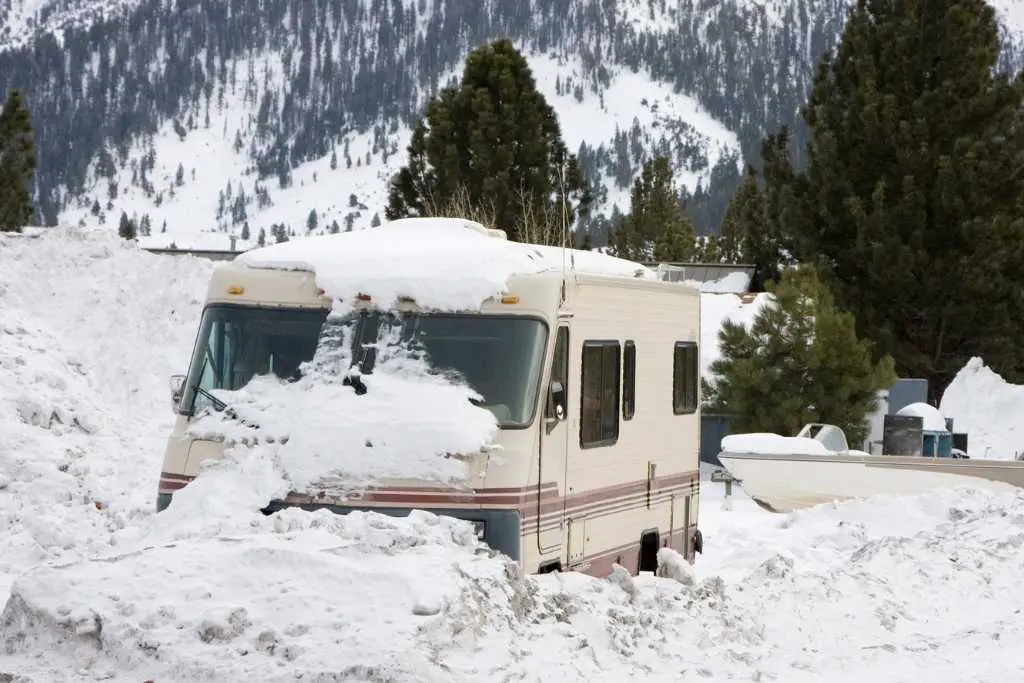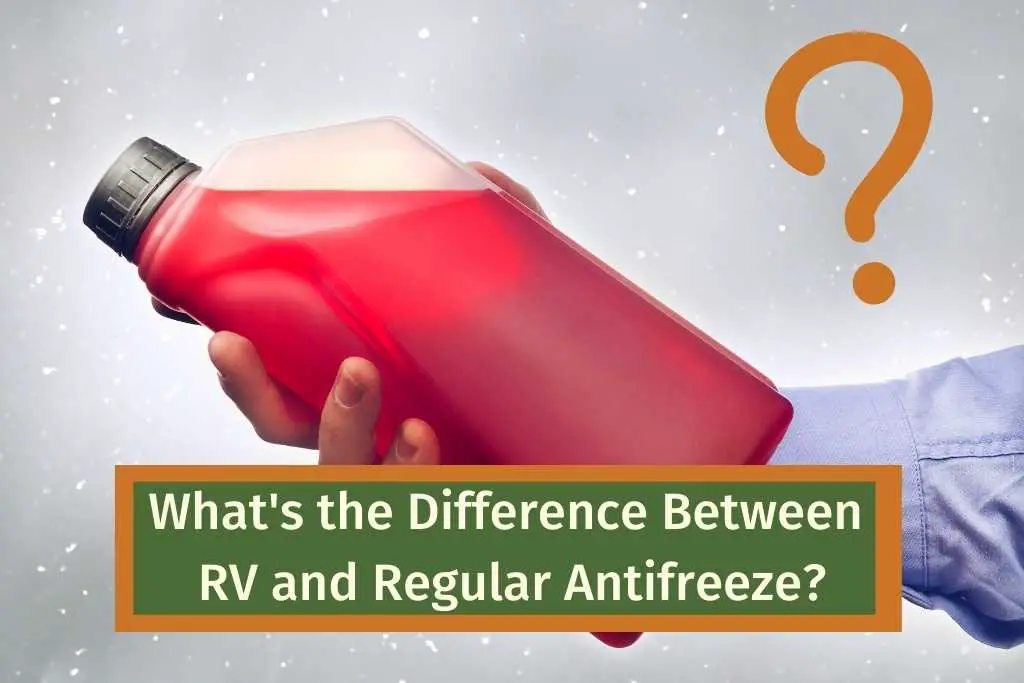This article will explain the difference between RV and regular antifreeze. All antifreeze is the same – it’s an easy assumption to make. But RV antifreeze is very different from regular antifreeze.

What’s The Difference Between RV And Regular Antifreeze?
RV antifreeze and regular antifreeze are very different. RV antifreeze is designed to be poured directly into the RV plumbing system and is non-toxic. Regular antifreeze is designed to be poured directly into the vehicle’s engine, it acts as an antifreeze and a coolant, and is very toxic.
The easiest way to tell them apart is by the color, RV antifreeze is pink and regular antifreeze is usually green.
Both types of antifreeze perform the same function which is to lower the freezing point of liquids to ensure nothing freezes and everything keeps flowing in cold weather. Regular antifreeze also increases the boiling point of liquids and therefore also acts as a coolant.
Regular antifreeze and RV antifreeze are not the same and perform different jobs. Regular antifreeze is only for a vehicle’s engine to keep the temperature stable. RV antifreeze is used in the sewage system, and grey water tanks to stop them freezing.
RV antifreeze also tends to be cheaper, it’s meant to be used at full strength unlike regular antifreeze. It also has more uses than car antifreeze so you will go through it quicker.
RV antifreeze is non-toxic for humans and animals, it’s usually made from ethanol or propylene glycol which is non-toxic. If you have a choice of the two, pick the propylene RV antifreeze as this also increases the boiling point as well as decreasing the freezing point. Ethanol RV antifreeze just lowers the freezing point.



Can Car Antifreeze Be Used in an RV?
RV antifreeze is made from propylene glycol which is non-toxic. RV antifreeze is dyed pink to show that it is non-toxic and safe to be poured into your RV septic system. Regular antifreeze is toxic and can not be used in your RV septic tanks.
Do not use regular antifreeze in your RVs plumbing system as it will kill all the bacteria in your septic tank, which is not a good thing as like your gut the tanks have good bacteria in there too.
Only use RV antifreeze in your RV septic system, because it’s non-toxic and environmentally friendly. It won’t damage your septic system
You can use car antifreeze in your RVs engine, as it will
Can RV Antifreeze be Used in a Car?
RV antifreeze is used for the plumbing systems in RVs, boats and campers; it’s not for engines. Water in the plumbing system needs to be protected from freezing, if your pipes freeze then it can cause serious damage.
Do not use RV antifreeze in your car (or any) engine. RV antifreeze has no anti-boiling agents and so will overheat and kill your engine. Don’t mix regular and RV antifreeze together either, when they mix they will turn into a gel and clog up your whole system wherever you put it.
Is RV Antifreeze The Same As Pool Antifreeze?
Both RV’s and swimming pools need to be protected from freezing. And both need a non-toxic antifreeze, so yes they are the same thing. They both contain propylene glycol which is non-toxic so is safe to use in both an RV and a swimming pool.
The non-toxic antifreeze is pink and is safe to use in cabins, mobile homes, RVs, boats, swimming pools, and septic systems.
Although you can use swimming pool antifreeze in your RV, unless it’s substantially cheaper it’s best to get RV antifreeze. This is because the instructions on the packaging will tell you precisely how much you need for your RV.



Is RV Antifreeze the Same as Marine Antifreeze?
Marine and RV antifreeze are the same product, they are both made from the same chemicals and have the same job. RV and Marine antifreeze can both be used in plumbing systems to winterize your boat or RV.
You will need to make sure that the antifreeze you use is non-toxic, so it’s safe for your drinking water system and your septic tanks.
RV and marine antifreeze come in different strengths so make sure you read the label, you will want an antifreeze that protects your plumbing system to temperatures of -50°F at a minimum.
A lot of the time RV antifreeze is cheaper than marine antifreeze so it can save you a few dollars. Just don’t dilute it as you will need more protection on a boat for lower temperatures than an RV.
Final Thoughts
The main difference between RV antifreeze and regular antifreeze is that RV antifreeze is made for the plumbing systems on your RV, boat or camper. Regular antifreeze is for the engine in your car. Don’t use RV antifreeze in your engine because it has no coolant and will overheat.

